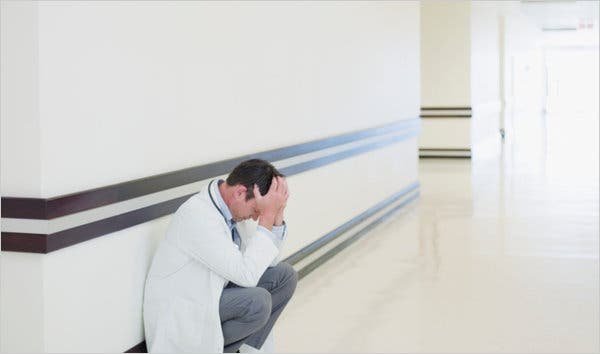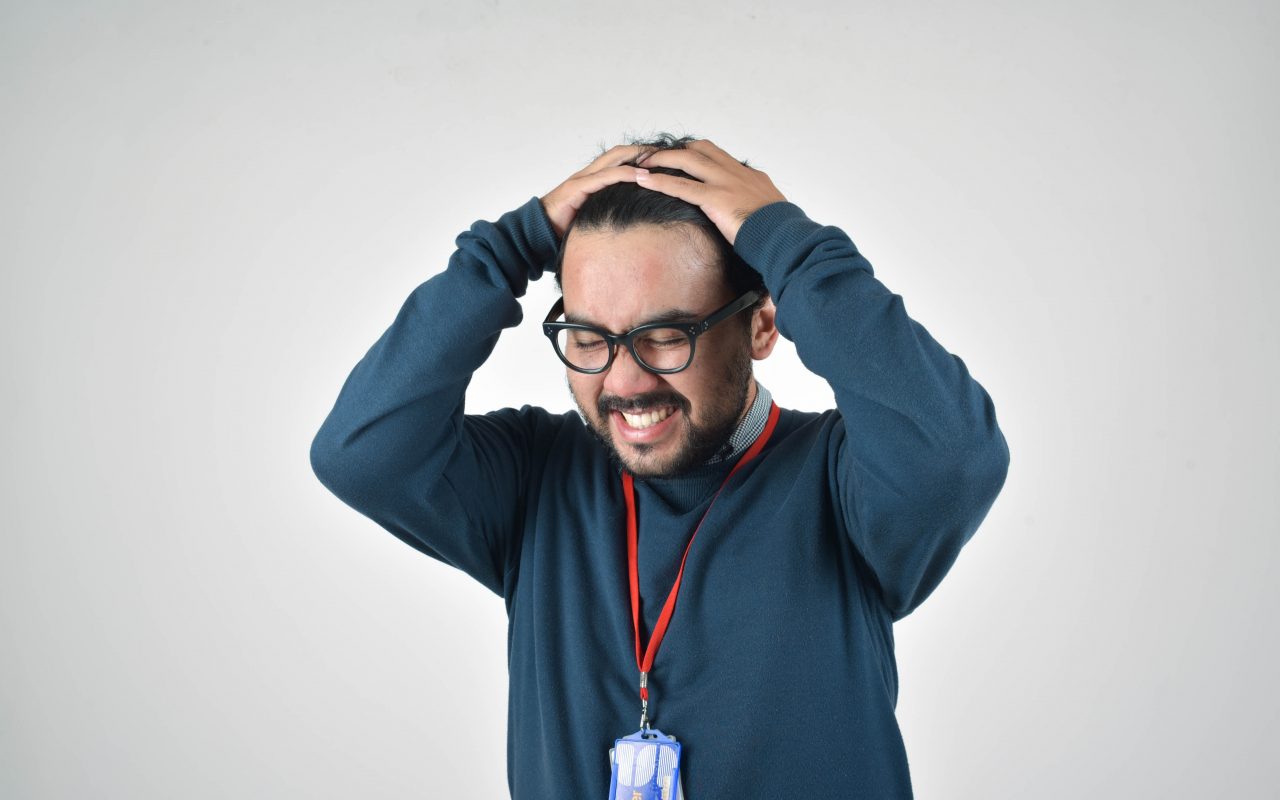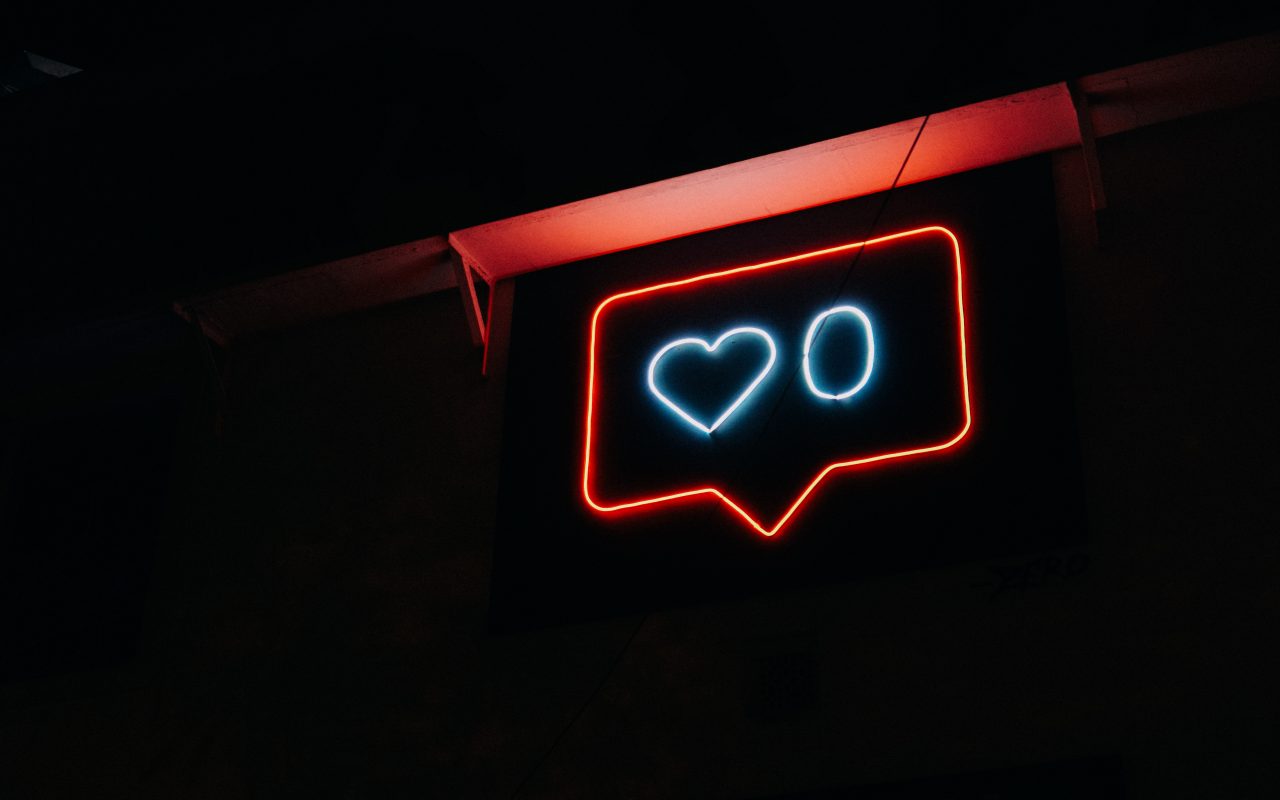It is really difficult to move on in life after losing a loved one suddenly but life being life has to go on. Everyone has to keep going and i did too…
Mental Health issues amongst doctors in India
“ The Indian Journal of Psychiatry states that 30% of Doctors suffer from depression at some point in their lives “
Yes, the very doctors we seek to cure our physical and mental problems are the ones that are at risk of Depression.
If you find this fact staggering, you should take a look at the fact below.
The Same Indian Journal of Psychiatry also states that 17% of Doctors and Medical Professionals have thought about ending their lives at some point in time.
It may sound shocking, but it is true. This is caused by the immense stress these medical professionals go through every single day. The High Doctor: Patient ratios in India, paves the way for a highly stressful work environment for medical professionals in our country.
Why will India need more doctors in the future?
While the current number of doctors is too low to look after patients, a lot of us have thought that the coming years will be great for the medical community. But tragically, the future does not look good either. The World Health Organization ( WHO ) states that India has 7 doctors for 10,000 people.
Do the math right and you will find that there isn’t even a single doctor for a 1000 people in the country. The Average count of doctor: people ratio is a shocking 1: 1428.
The research also states another interesting yet disturbing fact. Even with the good number of medical colleges and students opting to become medical professionals, India will take a lot more years to achieve the 1: 1000 of Doctor: Patient ratio.
The calculated facts state that India needs at least until 2030 to achieve this ratio. But by then the estimated level of the Indian population would rise from 1.239 billion to 1.476 billion. The simple solution is that we need more doctors and better resources we need to give them improved working conditions.
Why are Doctors at Risk of Depression?
Depression is a mental condition that negatively alters the way of life, causing a feeling of sadness. It can spring up due to a number of reasons, but a highly stressful life is one of the major reasons people fall into depression.
Doctors lead a stressful life and when they fail to implement proper stress management techniques, they sometimes end up finding depression at their doorsteps.
Reason for doctor falling into depression
Untimely work shifts
Irregular sleep patterns
Lack of support and empathy from superiors
Loneliness in the workplace
Failing to strike a balance between personal and professional life
The sudden death of a patient
And a number of other small reasons that add up over time.
Why do Doctors refrain from sharing their problems with the Community?
Doctors are health advocates and when they claim that they are affected, they simply lose their credibility. Even worse is that Depression can put doctors at risk of losing their rights to professional practice.
Yes, doctors defer from telling their peers and colleagues that they suffer from depression. This is because of licensing boards that prevent depressed and mentally unstable doctors from carrying on with their practice.
The Medical Boards in India always make sure that the patients are safe in the hands of their doctors. Suffering from a mental illness or depression makes a doctor unfit for medical practice.
The type of doctors that are at risk of getting depressed
trauma surgeons
Emergency care doctors
vascular surgeons
general surgeons
The specializations of a medical professional put them in a state where they have no people to relate to. There is also a pressure to make Life-Saving decisions in their practice adding to the stressors of life. When these professionals fail to allocate their time to take care of their mental health, falling into a cycle of depression seems inevitable.
Are Junior Doctors safe from these pitfalls?
If you consider junior doctors and early medical professionals to be safe from depression, you need to think again. Junior Doctors are at more risk of suffering from depression due to another set of reasons.
Errors with prescription
Humane Errors while taking care of patients
Losing patience with patients/caregivers
Inability to communicate with patients.
Lack of empathy and understanding from seniors.
Let’s Take a Look at the case study from a Tertiary care Hospital in North India
This Live study was implemented to serve as proof for the claims of increasing psychological disorders and burnout among medical professionals.
An online survey was forwarded to the 1721 doctors and hospital staff. A total of 445 professionals responded to the online survey and the results were quite shocking
Here are the test results of this online survey.
30.1% of Professionals were reported to have depression or experienced it in the past
16.7% of professionals had suicidal thoughts in the past
And a whopping 90% of them were evidently burnout
This proves that Doctors are going through extreme sets of depression and other mental health problems. We need to act quickly and fiercely to put in measures that will save the people who save us.
Jai Hind
Vivek
Post Partum Depression – What You Need to Know
Postpartum Depression is one of the most widely reported cases of depression in India. It is the depression that occurs after childbirth.
Although 10 million cases are reported in India every year, most of the women and sometimes even men going through this phase do not seek help.Unlike the baby blues, postpartum depression rarely disappears on its own. The condition can occur days or even months following the birth of your child and last for many weeks or months without treatment.
Let us first talk about the most important point first –
Postpartum Depression happens due to hormonal changes. It does not make you a bad person and for that reason do not be hard on yourself. The biological and bodily changes are the reason that you are facing this.
Postpartum Depression is curable. Please consult a doctor to get a detailed plan but below we are offering you a couple of points to keep in mind to cope with postpartum depression.
1.Eat and Sleep right
Consuming a diet rich in omega-3 fatty acids, which are found in oily fish such as herring and salmon, during pregnancy may lower the risk of postpartum depression. It is also a good alternative for treating postpartum depression
2.Also Nap
While many moms will be rolling the eyes here, it is really important you squeeze in as much sleep as possible.
3.Bond With Your Child
Emotional bonding is highly important between newborn babies and their
parents. The bonding eases out the child and it goes beyond just the initial days. Successful bonding allows the child to feel safe enough to develop fully, and having this bond will affect the way in which they communicate and form relationships throughout their life.
A secure bond forms when you tune in and respond to your child’s needs or emotional cues, such as picking them up, soothing them, and reassuring them when they cry. Being a dependable source of comfort shows your child to learn how to manage their own feelings and behaviors, which, in turn, helps to strengthen their cognitive development.
4. Start exercising
Multiple studies have shown that exercise can successfully combat postpartum depression. It helps ease out the symptoms as well as help you achieve a better psychological state.Walking is a good starting point, with the added bonus of being able to push your stroller at the same time. Aim to be active for around 20–30 minutes per day. Even exercising for 10 minutes can benefit your body.
5. Breast-Feeding
A study on breast-feeding concluded that it may reduce the risk of PPD. This protection can help you until the fourth month after delivery.
There have been some cases where women develop depression symptoms
while breastfeeding. Known as Dysmorphic Milk Ejection Reflex or D-MER, you might experience sudden feelings of sadness, agitation, or anger that last several minutes after your milk lets down.
Conclusion
A proper diet, constant consultation 6 months into the birth of the child, sleep and breastfeeding should keep PPD away.
If you are still feeling the effects of it, please do consult the help of a professional.
Coping with Stress and Depression in Workplace
As millennials are getting into jobs for the first time in their lives, they are facing for the first time in their lives – workplace stress.
Workplace stress is common. Though some organizations, like Alibaba and Tencent, warrant and demand it through 699 (6 days a week, 9am to 9pm) to achieve the tremendous growth that it has, workplace stress has recently turned into workplace depression. Stress is good for the body. It keeps you alert, motivated and primed to respond to danger. But too much stress may lead to depression in susceptible people.
Stress might be necessary for extracting the best out of oneself, but the moment it turns into depression, the employee can have serious health and life risks attached. More importantly, the productivity of an employee who is in depression can be questionable. The modern conveniences have made it easier to work easily at any time of the day. Unless you are loving
your work, replying to emails while walking your dog can easily turn into a stressful event.
Lack of Empathy among co-workers and bosses has been stated as the main reason for employees going into depression. Long hours and lack of vision of how the inputs of the employees are going into the betterment of the overall company output are some of the other most commonly stated reasons.
It can be safely assumed that work stress is inevitable. So what is important in this scenario is building a support system. Whether it might be in the form of a person or a journal where you can write down your thoughts and feelings. Writing on a piece of paper of what you are feeling
has never been more underestimated anymore than in this generation than any other. Writing down can help settle one’s thoughts, open up new ideas and figure out solutions to the problems that one is currently going through.
It is also important to understand the criticism. Criticism is inevitable in a growth-oriented organization. One should always possess a critical understanding of whether understanding is constructive or not. If you are observing an environment where non-constructive criticism is being offered more than anything, it is important that you do yourself a favor and let the management know it. If it persists it is always healthy that you select a different pathway. This is because the criticism being offered is not providing any value other than the obvious mental harm which comes with it.
Even in tough times, you should always remember to keep self-belief of your skills and value. Nothing is more important than keeping up your self-esteem. Human beings, by their very DNA, want to be successful and add value, in everything that they do. But in a workplace that is constantly changing and where the goals keep changing, regrets and burnout can easily set in. This, in turn, can lead to anxiety, depression and, if employees
have poor coping strategies, addiction issues like drinking and smoking. It may also increase employees’ risk of developing lifestyle-related illnesses such as diabetes.
How to cope up with this stress?
Understand the importance of self-talk, reflection through writing and finding someone to open up about the worries you are facing. Get in a routine, eat healthy, exercise. Take a walk when you can; a light jog or run can churn up endorphins to ease some depression symptoms. When you need to take a day off, you do that without fear. Come back to work when you can give it a 100 percent again.
Can Social Media Really Cause Depression?
Social media got out of the small bubble of Orkut and Myspace into the lives of more than 2 billion people with the rise of Facebook and Twitter. It fueled further with the acquisitions Facebook made over the years of Instagram and Whatsapp.
The biggest users of social media today is that of Generation Y. Generation Y is defined as those born between the mid-1970s and the early 2000s. This population has grown up with a majority of the technological advances, such as computers and the Internet. They have established relationships with technology and strongly understand its various uses.
70% of Generation Y uses social networking sites and about 65% have an online profile. 63% of this population go online on a daily basis. Social Media addiction is real and it is a new age problem which we are still diagnosing.
The University of Maryland once conducted a study but blacking out 200 students of any type of social media for 24 hours. A major percentage of these students showed different types of anxiety, restlessness, and jitteriness throughout the day. With the rise of social media, our lives
have become less about accomplishments over a lifetime and rather about our everyday picture-worthy adventures on a 3*3 grid on Instagram.
Social media is also turning out to be a major distractor at work. The rise of notifications and the constant addition of devices from everywhere to the hand to the years, we are told to believe that every single notification is important enough not to be missed. Teens who are spending more than 5 hours a day online have been shown to have 71% more chances of dying in a suicide attempt. While this is a scary statistic, measures have recently started coming up to better serve the users of social media.
Is Social Media becoming unhealthy? Yes, it is. But is it all that bad and messed up? No.
All major social media applications have come up with the reminders and time spend features to better educate its users about the time they are spending on the applications. We can also not rule out the good effects of social media, in relaying information that was otherwise not available. The last 5 years saw the rise of hidden of the Gen Y, and they have successfully harnessed the power of social media through Instagram pages like KidsEatInColor to better parenting.
The one fact that we should understand is that Social Media is inevitable and the truth is that it is going to be there every single day you wake up. Avoiding social media completely in today’s world can be a little difficult.
We simply cannot deny the fact that it truly does help in connecting
in a much better manner than 10 years ago. The only way to counteract the bad effects of social media is putting up some guidelines for yourself, and strictly following it on a daily basis.
There are apps like Forest, used by companies around the world, to block out all of the social media during work hours. Putting up reminders of half an hour on all major social media applications can be the healthiest way to go forward.




